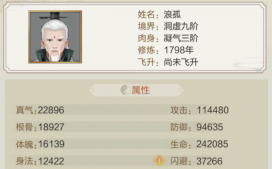mybatis collection 多条件查询的实现方法
前言:
业务需要通过mybatis 查询返回嵌套集合,嫌多次查询太麻烦,用自带的高级查询解决问题,下边是代码,已测试通过。
说下自己的理解,就是一个主查询结果集里面嵌套了子查询的结果集,可以是多个子查询,每个子查询的条件从主查询结果集中获取,返回值各自定义。collection 标签的property是主查询里面集合的名字,如果有多个就再写个collection,column是子查询参数,单参数直接写主查询结合返回结果,例如直接写上user_id,要是数据库的字段,多条件就封装下,例如{userId=user_id,theme=theme},然后子查询的parameterType写"java.util.Map",多条件查询好像只有mybatis3.0以后才有,看网上资料说的,没验证过,ofType是集合里的对象,select是对应下面的语句
实现代码:
|
1
2
3
4
5
6
7
8
9
10
11
12
13
14
15
16
17
18
19
20
21
22
23
24
25
26
27
28
29
30
31
32
33
34
35
36
37
|
<resultMap id="BaseResultMap" type="web.model.UserMessage" > <id column="id" property="id" jdbcType="INTEGER" /> <result column="user_id" property="userId" jdbcType="INTEGER" /> <result column="theme" property="theme" jdbcType="VARCHAR" /> <result column="status" property="status" jdbcType="INTEGER" /> <result column="theme_time" property="themeTime" jdbcType="TIMESTAMP" /> <result column="create_time" property="createTime" jdbcType="TIMESTAMP" /> <result column="update_time" property="updateTime" jdbcType="TIMESTAMP" /> <result column="yn" property="yn" jdbcType="INTEGER" /> </resultMap> <resultMap id="BaseVoResultMap" type="web.model.vo.UserMessageVo" extends="BaseResultMap"> <collection property="userMessageDetailList" column="{userId=user_id,theme=theme}" javaType="java.util.ArrayList" ofType="web.model.UserMessageDetail" select="selectUserMessageDetailById"/> </resultMap> <resultMap id="BaseDetailResultMap" type="web.model.UserMessageDetail" > <id column="id" property="id" jdbcType="INTEGER" /> <result column="user_message_id" property="userMessageId" jdbcType="INTEGER" /> <result column="sponsor_id" property="sponsorId" jdbcType="INTEGER" /> <result column="user_id" property="userId" jdbcType="INTEGER" /> <result column="user_type" property="userType" jdbcType="INTEGER" /> <result column="provider_id" property="providerId" jdbcType="INTEGER" /> <result column="message" property="message" jdbcType="VARCHAR" /> <result column="status" property="status" jdbcType="INTEGER" /> <result column="message_time" property="messageTime" jdbcType="TIMESTAMP" /> <result column="create_time" property="createTime" jdbcType="TIMESTAMP" /> <result column="update_time" property="updateTime" jdbcType="TIMESTAMP" /> <result column="yn" property="yn" jdbcType="INTEGER" /> </resultMap> <select id="selectUserMessageById" resultMap="BaseVoResultMap" parameterType="java.lang.Integer"> select * from user_message where user_id = #{userId,jdbcType=INTEGER} </select> <select id="selectUserMessageDetailById" resultMap="BaseDetailResultMap" parameterType="java.util.Map"> select * from user_message_detail where user_id = #{userId,jdbcType=INTEGER} and message = #{theme,jdbcType=VARCHAR} </select> |
selectUserMessageById,这个是主查询,VO只多了个 private List<UserMessageDetail> userMessageDetailList,
这个属性,下面是返回值结构截图

如有疑问请留言或者到本站社区交流讨论,感谢阅读,希望能帮助到大家,谢谢大家对本站的支持!
原文链接:http://blog.csdn.net/di315362886/article/details/60144410





